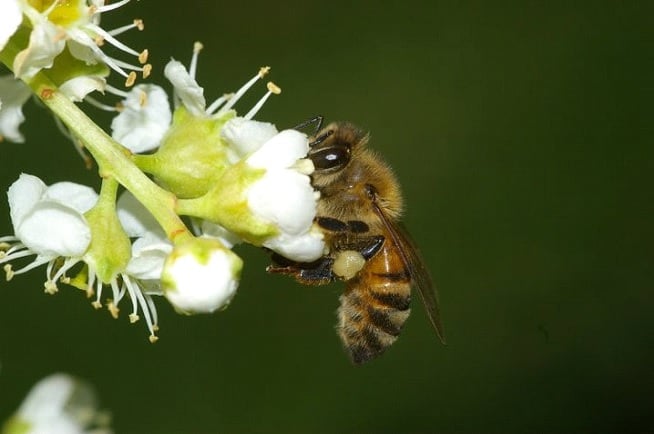AITCHISON BEE BOYS' CLUB
Our venture into bee-keeping at Aitchison has grown to eleven productive hives. Our purchase of Australian ‘domesticated’ bees was influenced by their calmer nature, as opposed to the wild native bee variety. Four species of honeybees are found in Pakistan. Three are indigenous and one is imported and established in Pakistan. These species are present in different ecological areas of the country. The indigenous species are Apis dorsata, Apis cerana, and Apis florea. The occidental species is Apis mellifera. All types produce excellent honey and our first harvest in excess of 50 kilos of raw honey was a good first achievement for the Australian bee brought from Islamabad and recommended as best for a school study. E2 boys played an instrumental part in the harvest and cleaning of the raw honey. The bees are a part of Prep environmental science.

The value of bees to human survival is well-known. Crop pollination: The share of honeybees in crop pollination is 80 %. It improves the quality of fruits, vegetable and yield of seed crops. Honey Production: Honey production from occidental bees is up to 24 kg per colony per annum. The sidder honey fetches maximum price. Bee hive value-added by-products: Royal jelly, pollen and propolis are used as health food and beeswax in cosmetics. Beekeepers in Pakistan are maintaining a fairly large number of honeybee colonies and are capable of producing royal jelly, pollen propolis and bees wax. The production and value addition of by-products would supplements the income of beekeepers. At Aitchison, bee-keeping will link with our entrepreneurial endeavours in labelling and marketing top quality raw honey.
It is said by scientists that without bees our structure of pollinated food would decline rapidly as they keep crops and plants alive. Albert Einstein predicted without bees humankind would last 4 years only. We have had our challenges and learned good lessons about how to protect hives from ‘invaders’ and ensure that the hives are free from disease and not too warm. On one occasion, we lost four hives to native bees that attacked and killed the queens. It is crucial not to place food sources too close to hives as this encourages invaders. Global warming is also a problem for bees and some reports suggest the local bee population is declining because of this. Not, so far, at Aitchison! We believe that bee-keeping is a responsible and fun thing to do. Studying the way bee hives operate is like studying a highly integrated and perfected insect that has intrigued humans for thousands of years. Bees source pollen in a radius of up to 5 kms.


